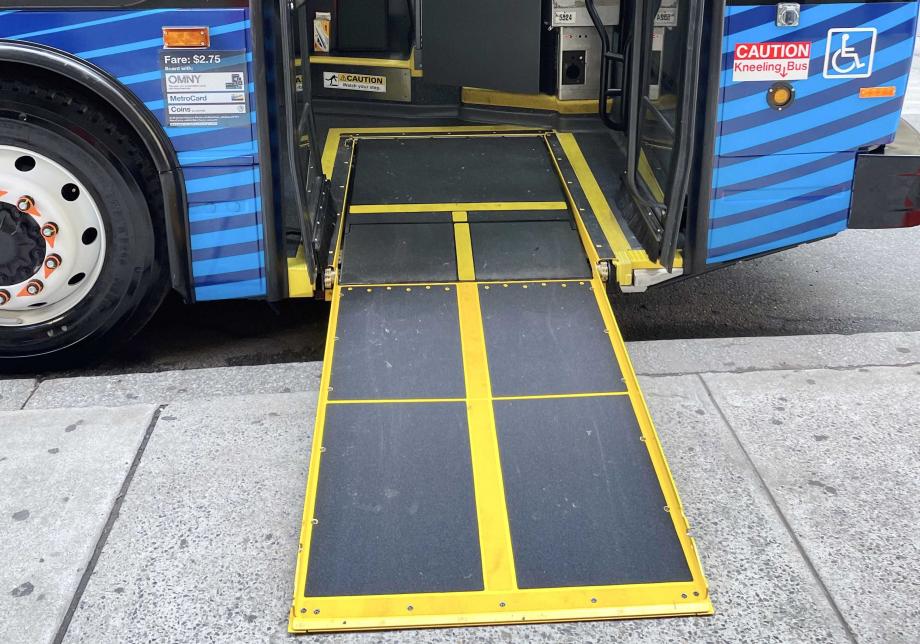Image transcript:
Calvin (from Calvin & Hobbes) sitting at a lemonade stand, smiling, with a sign that reads, “Trains and micromobility are inevitably the future of urban transportation, whether society wants it or not. CHANGE MY MIND.”
I like how you assume that society will choose to have a future over self-immolation.
Yeah that’s a bold assumption. My bet is on “it’s going to get progressively worse and never better”. I have yet to be proven wrong. Since the day I was born everything’s been enshittening with only inconsequential cosmetic improvements (lol technology, what a joke).
My plan is to work from home, be completely self sufficient with minimal transport and do all I can do online.
So your definition of self sufficient is to be 100% reliant on Internet infrastructure?
Eh, I guess? Partially. I have stores nearby that I can go walking, and WFH so yeah internet reliant, but I’m a programmer so that’s already a given anyway.
I did say self sufficient with minimal transport though.
I live mostly this way. I have an electric car but I live in a very dense urban area and don’t drive much. Looking to get myself an ebike or scooter to use as my main mode of transportation.
Yeah…being a programmer, it doesn’t matter if WFH structure falls because around the same time most technology might fall. We just gotta hope that it’s multi-decades away at this point
Internet infrastructure is best infrastructure humanity made. To be fair, this is only infrastructure entire humanity made.
If nothing else, car dependency is fiscally unsustainable. We might go kicking and screaming towards the solution, but eventually people will have no choice but to abandon the financial suicide that is making your city car dependent.
True, and I wish my city would realize it harder, sooner. On the other hand, I just read an article the other day that claims that the collapse of civilization has begun. A lot of societies throughout history perseverated with maladaptive habits after the local environment changed, and thus collapsed. A lot of them didn’t, though, and I hope that we’ll wise up in time.
But yeah, honestly, I’m worried myself that our society is starting to unravel if we don’t get our act together. Unmitigated climate catastrophe may well prove to be the greatest disaster in human history, if you count all the wars, famines, genocide it may cause. I sincerely hope it doesn’t turn out so dire, but so far humanity is stubbornly refusing to do anywhere near enough to stop it. Whether that’s civilization-ending or merely really frickin bad remains to be seen, but it’s also worthwhile noting that collapse doesn’t always mean post-apocalyptic; for farmers in ancient Rome around its collapse, life probably didn’t seem all that different day-to-day.
I’ve thought about that, too. How very rural people way back when may not have known or cared what empire they belonged to. I read years ago about a region France that routinely got double taxed because no one was really sure if they were French or German, and it was just easier to pay your taxes to both collectors than fight it. A society like that, yeah, they may not care so much about the empires collapse. But us? Even in the most rural areas of any ‘western’ country, the difference would likely be huge. No sanitation department, no internet, no electricity. And because, especially in the US, we have never developed a sense of personal responsibility to our communities or any kind of solidarity, we are unlikely to weather that particularly well. There’ll be no spontaneous eruption of communal gatherings and a sense of building a better community. They’ll be bastards hoarding shit and people shooting each other because there’s no one to stop it. :(
That’s wierd. In country where internet was created(on tax money btw) not everyone gets internet.
There’s no getting our act together. We’ve already passed the point of no return. Now we can only try to mitigate how bad it could get.
I don’t think we will take any serious steps toward that, either… I’m worried we’ll pull the Clathrate trigger in my lifetime
Ever read Mother of Storms by John Barnes?
A percentage of people will, like they always do. My pessimistic view is that we just need to see how bad it gets before the pendulum starts swinging back the other way
Let me remind you that there are rural areas where people life in farms and need to drive to the factory they work in, there’s no shuttle bus, no train no nothing, and while isolated factories exist this will still be the case. They can’t really arrange a bus that goes to pick up their employees, since the roundabout would make it more gax expensive and some people live in places where a bus can’t even dream to get in.
I wish things improved, and that this became a reality for cities, there’s already cities in holland where getting the car in is prohibited, you need to leave it outside the city, but making car dependency fiscally unsustainable is punishing people that can’t have the privilege to work on other stuff. Imagine electrical technitians, they can’t take a bus/train/tram with machinery, even in a city. I’m all in for improvement and punishment for whim driving, but it needs to be regulated well not to fuck again poor people, because factory workers of rural areas aren’t partcularly rich.
For reference, I live in a mountain area, Europe.
OP mentioned Urban in their post, City in their comment, why do you need to come in with the “but muh rural” argument?
Because apparently I can’t read.
Again, for reference, I don’t even own a car, I WFH and life in a town where public transport is excellent, but most of my family members live in the situation I described. Anyway, even though this post is about urban areas, there are plenty comments talking about cars as a whole, and usually policies done to fix car usage, things like gas prices and such, affect everyone, not only urbanites like me.
In a perfect world/scenario…which would never happen…
If urban centers immediately dropped their reliance on cars and individual transport systems, then there would be more gas to go to rural centers where individual transportation makes more sense (going to the store) or is mandatory (farm and other industrial equipment) making prices drop for rural gas and urban center be more self sufficient and environmentally friendly.
…one can dream
Urban centers dropping their car reliance isn’t achieved by making it expensive for everyone, but by banning it’s use and increasing the public transport support.
Depends on society. Here in Europe we build more and more railways even though we already have shitloads (compared to US).
But build very slowly. Compare to USSR where shitloads of railways were made in 70 years.
Although “better less, but better”
Well, USSR was a different beast. You can’t build that fast in a democratic society.
After around 1919 and before Stalin USSR was democratic. And from 80-ies to the end. And democracy ended about 1996. Then shooting parlament from tanks, then Eltsin names his successor, then his successor wins, then removal of gubernator elections in 2002-2003, and everything else.
And in comparasion USSR was more democratic than empire except Stalin time. Stalin time managed to be even worse.
Oh wow, the delusion… Mate, you ok?
You want to say that Russian Empire that was monarchy had more democracy? THAT is delusion.
Or you want to say Stalin was good? That is delusion too.
Where did you get the Empire from, mmm? The fuck are you talking about at all?
I especially like that this format of the meme removes the d-bag that is in the original.
I’m still not 100% on board with it because it still made me immediately think of that mentally, sexually, and maybe even physically abusive fuckhead.
Memes are so much better without the backstory. This was the first time I’ve seen it mentioned so I looked it up, and holy shit. Had no idea that was him, I’ve seen the name but not the face.
What is micromobility? I am unfamiliar with this term.
It’s things like bikes, ebikes, electric scooters, monowheels, etc.
My powered wheelchair!
Based
Oh I love electric scooters in cities! I always get excited when I visit a city that has those Lime or other brand rentable ones.
I own my own private electric scooter and it’s great. Makes for a quite pleasant commute, especially since I have a route that goes on protected bike lanes all the way from my apartment to my work!
So like motorcycles?
Among other things include bikes, scooters, monowheels, etc.
Thanks. that makes sense.

https://www.youtube.com/watch?v=Gzd11GMBONg
He’s still with us. Why isn’t he doing stuff today? I feel like he’d be a huge YouTube star if he did his schtick reading Twitter threads or comment sections super fast. Stuff like that.
Hi there! Looks like you linked to a Lemmy community using a URL instead of its name, which doesn’t work well for people on different instances. Try fixing it like this: !micromobility@lemmy.world
good bot
Seems like all posts about e-bikes. Let’s see some pedal power!
I have pedal foldable bike(because I don’t want cramming unfoldable bike in elevator pornography) and regular scooter. I want escooter, but will buy it only after 3d printer.
Cars, but like, Hot Wheels size.
It’s a relatively new term to refer to extremely small and lightweight vehicles generally used for short-distance rides. Things like bicycles, rollers, very small electric vehicles like e-rollers, e-bikes, segways etc.
Wasn’t there a toy in the 80s called Micromobiles?
We shouldn’t take anything for granted. The US has happily killed it’s cities for decades instead of investing in public transit. If we don’t push for it, car companies and rich people will keep public transportation from ever taking off.
If remote work takes off, and ordering most everything online, I wonder if urban sprawl will get even worse.
Why do you live in the USA?
It’s highly expensive and difficult to emigrate from here.
Moving is probably expensive.
I feel like a bunch of us here would swim in other waters if it were easy to leave.
I find it funny how there are often lots of people that live in the US that would love to move somewhere like the UK, while there is also someone in the UK that would love to move to the US.
While the former is far easier than the latter, I wish that there was a “The Holiday” style visa where you could swap status with someone for a year.
Is the former really easier?
Really good and interesting jobs.
Yeah, I live in a conservative state, and the state department of transportation stepped in and blocked my city from adding a few blocks of bike lanes. They want to get rid of everything “public;” transportation, schools, health, etc.
The more people try to “innovate” transportation the closer it gets to going back to trains. Driverless cars, for efficiency have them communicate with eachother, to accelerate and brake at the same time, for example. That’s just less efficient and more expensive trains.
There’s a massive failure condition for your example - sure, autonomous cars behave like trains when they communicate with each other to sync acceleration and deceleration, but they can also separate themselves from the collective to drive you to the door of your home. In the train metaphor this would be like you sitting in your own train car, and the train car separating from the rest of it and driving you to your doorstep.
oh no, if only someone hadn’t centralized like, a point, say, a station, where people could conveniently access the train of cars…
they could call it a… hmm… TRAIN STATION?
Why cars? Why not buses, trams, trolleys or even bikes?
whoooosh
Or you could have a train that drops you off either close to your home or close to a bus station that drops off near your home. This would require a walkable city, so it’s definitely not as simple as just building tracks and bus stations. The issue is that Americans are so used to car dependent infrastructure, that when they try to imagine what public transport would be like, they think of it in the context of where they live. That’s why I think so many are opposed to the idea. It’s not an impossible task, it’s just that it’d require money and effort, so it probably won’t happen.
It also won’t happen because not all of us live in cities. The “fuck cars” crowd never has any solutions for rural locations other than “don’t live there” as if rural areas serve no purpose. As long as farms are a thing there will be people out here, either farming themselves or supporting farmers,and things like scooters and trains either won’t work or only partially solve the problem.
Anyone who thinks getting rid of cars is a viable strategy in the US of all places is delusional.
You are talking about a minority of vehicles though. 77% of US personal vehicles are non-rural, hence, fuck them.*
I also don’t think many people want to get rid of every single car everywhere for every purpose. Most cars are personal vehicles in built up areas and that’s where they cause the most problems and make the least sense.
*From 2017 NHTS https://nhts.ornl.gov/
You reinvented switches.
I think you miss part of transportation system that says system. It’s more than one element.
There’s an argument to be made that driverless cars make more efficient use of our existing infrastructure, namely, roads, and are more adapted to the hellscape of sprawl that we created. Traffic jams could effectively be eliminated if you get rid of people that treat the left lane like a regular traffic lane, people going too slow, people going too fast, etc. It’s not like building more trains is going to suddenly mean that trains are convenient - there is a VAST amount of sprawl, and it’s not going anywhere. It took the steel industry shutting down in Pittsburgh, and 60% of the population relocating, before people got the bright idea that actually living closer in to the population center makes sense and turn small outliers into ghost towns. I’m not against trains, I just think the scale of the problem is larger than most people understand when they say “build more trains.”
The best long term solution for both nicer cities, happier people, and less environmental damage is to overhaul our infrastructure. Don’t build trains in car dependant cities, make the car dependant cities walkable with public transportation that will leave you within a few minutes of your destination. The real reason self driving cars are the “future” is because selling cars has a higher profit margin than train/bus tickets.
There’s an argument to be made that driverless cars make more efficient use of our existing infrastructure, namely, roads
Buses. It’s almost driverless car with 1/80th of driver per
driverpassanger. Also it’s 1/80 of car per car equivalent.Not a foregone conclusion, at all. The average car occupancy now is something like 1.2 people, and self-driving cars might drop that below 1. Time behind the wheel is a cost that people pay for mobility, among other costs, and the Jevons Paradox says that if you make a commodity cost less per unit (i.e. more efficient) we end up using more of it in total, e.g. coal, or lighting. We could have more traffic as people send their empty cars on errands, for example. To get the benefits, you’d have to ban private car ownership. That seems like a heavy political lift, considering that they don’t even expect half of the U.S. private auto fleet to be electric before 2050, and those are available for sale right now.
The bit of the puzzle you are forgetting is the taxpayer-subsidized roads lose half their lobbying funds when electric cars are a thing. Wihtout trillions being spent sabotaging transit and micromobility it starts looking a lot better for cities to buipd a bike path for $1 million thna a highway upgrade for $1 billion
How to not make a train out of cars:
- Remove driver
- Make them follow predefined path
- Make them accelerate and decellerate together
- Link them together for better space-efficiency
Now you got Certanly Not A Train™.
Why it’s certanly not a train? Because it still has terrible rollong resistance and low material efficiency.
That not true!
For some places rail is too expensive or inflexible. So you need driverless cars, but you can make them cheaper by not having so many of them, instead having really big ones, and since driverless is not ready we hire a human to drive for now.
So sometimes you get buses!
The future of transportation is no transportation.
How many car miles could be saved each year if people didn’t have to go to the office to do their jobs? We were already most of the way there.
That… is silly. Things need to move.
So you expect us to live in a virtual pod with a treadmill and grow all of our own food? And collect rainwater?
Edit: I’m not saying we shouldn’t reduce our need for freight. Growing food in your backyard (half of my yard is good production) reduces the need for freight emissions. And I cycle to work. But drive or fly on holidays, I wish we had a more reliable train network.
They said transporation, not freight. I think they mean you can access everything on foot. But just for your heresay against the pod, your pod was made 10% smaller and your treadmill was made 10% faster.
Freight is just thing transportation, It’s a subcategory so it’s not like it’s not included. It’s silly to act like it’s stupid to think it is.
How far and how often is the key, on a well planned city people should live close to their jobs and recreational areas, taking away people commuting to work and grouping people with similar destinations together you can solve traffic and give people more mobility.
That point maybe wasn’t very good, probably saying that offices should be closer (also work from home)
Not everyone works in an office. Construction, trades, and utility works still need vehicles to work on and create infrastructure out and indoors.
You’ll also have tons of people in rural area like farmers and ranchers that still need vehicles.
That being said most of those vehicles will be electric soon. My company will be moving to electric starting in 3 years.
PS: I’m a utility worker, and we take our work vehicles home foe weather emergencies, so the transportation line is a little blurred for me
Yeah, you still need to transport items, and people that do things with their hands, but surely in most first world countries, these things are a minority of road traffic.
If you can get those chokepoints out the way, from dystopian 10 lane traffic jams to an overcrowded tube train, everything else would run so much smoother.
I would totally love not to be in a traffic jam, especially while on the clock as I don’t get paid for the drive time to and from work.
Yeah, you still need to transport items,
Well, cargo bikes are a thing. You can transport whole fridge there.
Construction, trades, and utility works still need vehicles to work on and create infrastructure out and indoors.
That didn’t stop people before cars. Back then people built small railways if we are talking about construction.
farmers and ranchers that still need vehicles.
They need specialized equipment. They need heavy equipment.
That being said most of those vehicles will be electric soon.
A car is a car. Another motor doesn’t turn car into magic.
That didn’t stop people before cars.
Standard of living was much much worse back then.
They need specialized equipment.
They also need to get to stores and see friends and family. Asking people to go back to insular homebound living for farm living seems unreasonable.
Another motor doesn’t turn car into magic.
However, if electric, it’s no exhaust, options for flexible energy sources, and hopefully long lived and recyclable batteries. If you are more upset about cars getting in the way of walking, then enjoy the walkable communities that exist today. Unfortunately they tend to be pricey.
They also need to get to stores
Well, ok. On farms cars at least make some sense.
However, if electric, it’s no exhaust, options for flexible energy sources, and hopefully long lived and recyclable batteries.
Yes, but they still take space, instane car infrastructure is still there and crashes still happen.
That didn’t stop people before cars. Back then people built small railways if we are talking about construction.
We wouldn’t be having this conversation if it weren’t for vehicles like mine keeping up the internet infrastructure up.
There’s also no fucking way you going to put train tracks everywhere to keep up infrastructure. That sounds really fucking stupid
They need specialized equipment. They need heavy equipment.
This statement makes me feel like I’m responding to a 14 yr old with no life experience. Not even going to bother answering it.
A car is a car. Another motor doesn’t turn car into magic.
Electric vehicles have no emissions so there’s no reason people can’t use them specifically for work.
PS: You can respond but I’m not going to bother with you. There’s no point in having a discussion with someone with illrational and militant about their ideals
There’s also no fucking way you going to put train tracks everywhere to keep up infrastructure.
There’s also no fucking way you going to put ashphalt everywhere to keep up infrastructure.
That sounds really fucking stupid
Yep. Didn’t stop from building roads.
Electric vehicles have no emissions so there’s no reason people can’t use them specifically for work.
You are correct, vehicles. Car is not the only type of vehicle, it’s one of many. And what I was saying emissions is not the only problem of car.
You can respond but I’m not going to bother with you
Ok.
There’s no point in having a discussion with someone with illrational and militant about their ideals
Indeed. See, there are topics we agree upon.
You make a good point but it’s hard to agree. I don’t like home, and would prefer not to work in my own home. I want to see the world, I like to travel. Perhaps if my life had more social mobility I wouldn’t be so starved for literal mobility. I have a car, could go drive anywhere. But it’s not real freedom.
What about groceries, various errands? it’s definitely not just going to the office is the only reason people get around with cars.
Basically in countries with more micromobility, they have smaller grocery stores. There will be one on every corner and you can just walk to it.
I see you mentioned suburbs. Yeah. The thing keeping shops and homes far apart in that case is zoning laws. And also building code dictating single family housing. In a more dense suburb in amsterdam or chicago you might have some rowhouse apartments but the first floor will be for shops, and one of those shops willcbe your nearest grocery store.
It’s a discussion about the bulk of transport and commutes. Distributors don’t need to follow a centralised system.
You still need to drive to do all these things, that’s often a considerable distance though if you live in suburban areas since everything is far away.
One argument that keeps coming up in favor of cars that the United States is big. Well, if it’s big, we have plenty of room to build things close to where people live. It’s only zoning laws that force things to be unnecessarily far away.
Yes that was my point, not that we need cargo trams.
And it’s not just US that has this issue although there is taken to the extreme.
Many suburban areas in Europe have the same issues but the advantage is that many of them were built around small villages that they have ballooned so there was something that could give local services for residents already.
Good point! I usually hear sincere arguments that we have to drive because everything is so far apart, and so I took it the wrong way. My apologies.
Trains(or cargo trams if you want fancy) for delivery to store and your eleven for delivery from store to home. Or ebike. Or bus.
These are the jobs AI will replace first.
LLMs are not AI.
If you can train an AI to take the stream of nonsense I am given on a daily basis, and not only turn it into software but also the software they needed rather than what they actually described, then that AI is fucking welcome to my job…
Good job with meme template, everyone needs to start adopting this format and not the one with the conservative fascist chud that abuses his wife.
I’m going to make the argument against trains for everything, despite being a huge fanatic for trains.
Trains are the most efficient transport method per tonne-km over land, yes. However from certain operational standpoints trains can make less sense than existing solutions.
When distance between stops for heavy rail becomes too short, you lose quite a bit of efficiency. Trains themselves aren’t a one-size fits all solution as there are various types that each need their own form of investment (which is a lot $), when roads are compatible with both personal transport and large trucks with little investment by the transporter (govt pays for road maintenance).
Rail companies right now are chasing profits and neglecting operational improvements. In the US, hauling a long, LONG, old and slow train loaded with bulk aggregate, oil, grain, chemicals is more profitable than aiming for JIT capability that is more feasible with trucks. A complete change in societal incentives is necessary to bring back the usefulness of railway in all types of transport. Second, the North American way of railroad companies owning the tracks dissuades a lot of innovation and new firms from entering the market, unlike the “open road” where there are many competing OTR freight companies. None of the Big Six would like my idea of a nationally controlled rail/track system.
mfs in 1923: “Cars will never replace trains and horses because there’s whole swaths of the country with no highways or gas stations!”
True. Then came ethyl alchohol. Then came alchohol ban, that basically subsidised oil industry.
The suburbs are inherently compatible with trains and really any public transportation. They were quite literally designed around the car and the expectation that everyone would have a car.
Unless you plan to bulldoze the suburbs and then force everyone to move into higher density areas your anti-car dreams are never going to happen.
Although there are many American cities that could get much more anti-car and public transport would work. LA could theoretically not be such a car city with the appropriate infrastructure built in.
Why are the anti-car people anti-self-driving car? With self-driving cars we could mostly eliminate private car ownership.
In the United States, I don’t know how you’d accomplish this. It would be impossible for almost all rural neighborhoods unless we’re going to build a grocery store within walking distance of most homes.
This is one of those liberal (I rarely leave my home) notions whose heart is in the right place but is ultimately stupid.
A huge problem with public transportation is safety and usability for small children, the elderly, and people with disabilities or who are sick. All these people often can’t use bikes or scooters. They have problems with having to wait standing and constantly out of order escalators and elevators.
I don’t own a car and live in a place with relatively good public transportation. That’s the biggest problem I see, next to how badly organised it is (at least here in Germany).
One of the leading causes of death for children in North America is from cars. Well funded and built transit should be accessible to all in their urban areas. Stops should have sheltered waiting areas with adequate and maintained seating. Good maintanence and funding would reduce equipment failures in elevators and other equipment. Ideally we densify around this transit as well which would help to reduce travel distances for people with movement disabilties and promote walkability. 95% of the time well designed and funded transit paired with good urban density and zoning will be more accessible to those with disabilities than private vehicle ownership.
Federalism is the key impediment to a sensible transportation policy, though. Corpo stakeholders drive sprawl. Developers have legislatures captured to a degree that exceeds even the gun lobby. 50 different state governments, with thousands of local governments, with a federal government that is unable to plan beyond the next election - the US is fucked. There are way too many entry points for bad faith actors to wreck a good plan. More opportunities for direct democracy and recall could help, plus rank-choiced voting, plus dosing the water with Wellbutrin to turn off people’s worry about supernatural bullshit, and we might get somewhere.
Yes, I agree fully.
Good maintanence and funding would reduce equipment failures in elevators and other equipment.
Thnk you! You said line nobody says. You are hero of your city.
Elderly people use electric mobility scooters at Disney literally all the time. They’re pretty great for the elderly so long as there’s accessability ramps everywhere.
Escalators and elevators being out of service seems like an issue of lack of investment in public transit.
And cities can be built around public transit and micromobility while still allowing cars. Generally, you’ll have better access for emergency vehicles, and you can do the same for people with disabilities.
I feel like people misunderstand my post. That it is a lack of investment is 100 % true. I want more investment and better public transport. People here seem to think I want to have cars, but that’s not my point?!
That is an organizational problem because my country next to it has all those things at just about every train stop (Switzerland).
Even in a country it depends on the state or city. In Munich and even around Tegernsee in Bavaria they have it better organised than in some places here in NRW. It’s because so many different private companies are responsible.
A big problem with car-heavy streets is everyone’s safety when the elderly are driving on them.
It’s also shown that if people live in walkable neighborhoods, they get more exercise and can get used to movement even in old age.
I literally see the struggle of the people I talked about everyday. In a walkable city with public transportation.
Criticising aspects of public transport also doesn’t mean I am against it or pro cars.
That’s definitely not a problem everywhere. The buses we use in Canada are very disability friendly and we have programs to teach kids how to ride the bus alone. We have bike racks on the front of our buses too, so we can combine modes of transportation.
The biggest problem with public transit over here is lack of funding and infrastructure. The bus system is intentionally kept shitty here so that people will opt to buy cars where possible.
Here the public transit was sold to private companies by the government. It still costs a huge sum of money but they have less strict laws when it comes to accessibility. The government is very much a boot licker of the car industry here and Germany in general has a weird car culture.
“Barely functioning” is good enough for public transport, that seems to be the overall attitude, even in the general population.
People here have no trouble walking to stops and bikes / scooters are common, so the premises are there. But instead of taking the final leap and improving public transportation so that more people switch, they are currently moving backwards it seems.
programs to teach kids how to ride the bus alone
Seems to be america-specific thing. Everyone I know just used buses since being kids just fine.
That’s nice, not everyone lived in the city as kids and not everyone is comfortable letting their young children roam the city alone. Everyone has different lives.
deleted by creator
Most of those people can’t drive cars either.
That’s true, but they can be driven in a car.
As well in a bus
because they can’t drive
And because it’s illigal. I mean would you like to place blind in driver seat?
American here, I have a disabled family member. Cars are ultimately harder on them because they physically cannot lift themselves into a car while also stowing their 200lbs wheelchair.
A bus or train doesn’t have that problem and are therefore better.
And the more walk able the area the better because it makes it far easier. I’m sure there are disabled and elderly people who have an easier time using cars. But to say in a broad sweeping generalization that it’s better for all disabled and elderly people is a mistake. Cars should not be the first go to for a solution.
And kids can’t even use cars. They are dependent on public transportation and the walkability in their area.
? I never said cars are better?
It’s just a problem that needs to be fixed and is rarely mentioned (if at all). Especially the unreliable elevators + escalators.
Additionally, many trams and busses here have narrow stairs to enter or a huge gap to the floor. Some bus drivers refuse to help people in wheelchairs, they will just claim the bus is too full so they don’t need to build the ramp. For the trams, there’s no way to get in with a wheelchair.

Ironically, these were meant to have enough space for at least one wheelchair. But the entrance is not friendly, for various reasons.
I have a mild disability and often can’t use the public transport because I struggle with stairs. Than I have to wait for a tram with a new model or walk around the city to a stop with no stairs.
They still build crossings like these and call it “modernized” …

For kids the biggest problem is that in a lot of vehicles the stop isn’t announced. And when the bus is (too) full they can’t see the monitors or out of the windows. (That’s a problem for all very short people I guess.)
It seems so odd to me that the transit doesn’t have accessibility for those in scooters or wheelchairs. In nearly every city in Canada I’ve been to, their underfunded bus systems all have a wheelchair access door and systems to lower the bus for easier access.
A lot of the busses have it here, but not all. It also depends if you are lucky enough the bus driver is actually helping.
For the trams it’s worse. To safe money they want to wait until the old trams get decommissioned, even when they are hard or impossible to use for disabled people. They also still build crossings made out of stairs, with no other way to reach the other side of the track unless you want to take a huge detour. Just because it’s cheap.
Germany loves their cars more than people realise…
Maybe you could try to get people in your communities to take pictures of these difficulties and write to their politicians how it is inadequate service. Perhaps there could be retrofitting done to the existing services and new regulations made for new devlopments. It seems wrong for transit not to service people with mobility issues, they can often be the ones who can most benefit from it.
This was and is done regularly. But the government sold the public transportation sector to private companies and nothing is done.
The skybridge would be required to be made accessible in the USA, regardless of whether its public or private. There are very limited exceptions to ADA requirements - the second the private company spent money “modernizing” a station without installing accessibility aids, they’d have opened themselves up to a lawsuit to compel them to make the station accessible.
I would imagine that Germany is no different that a lot of Western European countries in thinking it is better than the US (because it IS in a lot of ways). Would “we treat the disabled worse than Americans do” effectively trigger German national ego toward change? So long as you keep the convo focused on accessibility and not universal healthcare ;)
You should make a complete new thread discussing these issues. Fuck Cars shouldn’t be only about moving towards public transportation, but also about making sure that public transportation is good. I have a lot of trouble using buses too, so it is only sensible to bring up the issue to make sure that solutions include everyone.
Additionally, many trams and busses here have narrow stairs to enter
Didn’t expect to see that in the middle of Europe?
They still build crossings like these and call it “modernized” …
Dear Faust. This looks like Russia. People seem to not understand that off-street crossing is car infrastructure, not pedestrian one.
For kids the biggest problem is that in a lot of vehicles the stop isn’t announced.
I didn’t know in Europe public transit can be worse than in Russia.
? I never said cars are better?
Sorry, it seemed like that’s what you were implying.
Additionally, many trams and busses here have narrow stairs to enter or a huge gap to the floor.
It seems like there is quite a bit of difference in the construction of busses/trains between our countries which was causing us to talk past each other. For reference, here is a standard bus entrance:

And trains:

I know there are some train/tram systems that aren’t as good as this, and it isn’t the standard, but it should be.
They still build crossings like these and call it “modernized”
Yeah that’s some bullshit.
For kids the biggest problem is that in a lot of vehicles the stop isn’t announced.
Here that’s not so much of a problem. All busses have voice announcements and an LED display for the next stop. I’m not quite sure about the trains though because there are basically none in my city.
And when the bus is (too) full they can’t see the monitors or out of the windows. (That’s a problem for all very short people I guess.)
That’s not too hard of a problem at least, as you can run more busses on a line to deal with overcrowding.
“Cars are better” @ParsnipWitch
(ノಠ益ಠ)ノ彡┻━┻
I have more trouble with cars in my day to day life than with the issues of public transit. I just wanted to add that public transit has to be done better. But if you dare to criticise it people lose their minds here. And pretend you are against public transit and a car fetishist. -.-
You are destroying my fantasy that everything in Western Europe is better. But this would be extremely unlikely to have happened in the US in this day and age - the Americans With Disabilities Act (“ADA”) would have required the station (be it public or private) to have reasonable accomodations for the disabled. In Florida, for example, PalmTran stations would have an elevator on either side of the tracks to get you onto the skybridge.
I think people have a somewhat narrow view on countries in Western Europe. Every country is very diverse. It makes a huge difference whether you are in Bavaria, Brandenburg or Hamburg, etc. These are all in Germany but parts of the law can be different.
I live in Nordrhein Westfalen where it is okay if there is any alternative for disabled people. For example, you could drive to another station which has an elevator and than use the bus to come back. ( ་ ⍸ ་ )
I guarantee you, you have universal healthcare, and every one of those provinces. And very little issue with mass shooting. Or a legal system that keeps a significant portion of your minority population from being able to vote
A huge problem with public transportation is safety and usability for small children, the elderly, and people with disabilities
Probably because all of them can drive. Sarcasm. You just named all groups that will not get driver license. Expecially children and disabled.
They have problems with having to wait standing and constantly out of order escalators and elevators.
Everyone have to wait. Everyone hates standing. Maybe just do proper benches, maintanance of escalators or remove steps? Well, probably Germany don’t have problems with last one.
I wonder how a train is picking up my walking disabled mother from three Kilometres afar?
Will a train stop at my house to pick up my some two tons of gardening scraps per year?
At which time will it deliver my 100kg of groceries per week?
Nope.
Those super long electric busses will become more popular than trains. They are muuch cheaper to get. You can just send in a new one in case the first one breaks down, etc.
Though we also cant all live nrar these “train stops”?
I dont live near any right now.
Trains can transport higher loads of people though. So ultimately both trains and busses need to be the priority.
100% depends on where you’re going and how far journeys are.
For a small inner city area, a subway is great. For a larger urban area, a tram system. For intercity travel, trains. Out in a rural area, buses would be the way, although more remote locations would need government subsidies to be even remotely functional, and even then it may resemble on demand taxis rather than a scheduled bus service.
No single solution will get you all the way there.
No single solution will get you all the way there.
Except for the car, which is why it’s such a popular choice. Also no need to worry about catching the next thing, or buying the right tickets, you just get in and go.
I haven’t heard of any solution or combination of solutions that would be convenient and work in most cities.
Yep there’s nothing else as good as having your own vehicle to freely travel wherever you want to on your own schedule and in relative privacy. The rest of y’all can enjoy your trains as much as you want, but there’s no train or bus that comes out to my house in the woods so I’m going to keep driving my car for the foreseeable future. After that it will probably be an electric SUV that I keep driving. I’ll charge my car from my solar power at home and be energy independent.
Doesn’t it bother you that even in cars you don’t have privacy?
Can car move you from bedrom to kitchen? Escooter can.
No single solution will get you all the way there.
Absolutely. Public transportation needs to be comprehensive.
Subway is just giving space above ground for cars. Since there is no cars, you can just do trams.
although more remote locations would need government subsidies to be even remotely functional
Not that current roads to remote loctions are subsidised
What needs to happen first is fuel price needs to be so high that people are incentivized to
a) switch to public transit no matter how shitty it is because they just can’t afford a car anymore
b) start public transit companies because there is money to be made and the oil lobbies don’t have enough money anymore to lobby effectivelyMy guess is before 2050 nobody will really get anything done because the oil lobby is just too powerful. Would be great though.
What needs to happen first is fuel price needs to be so high that people are incentivized to
Absolutely. The fossil fuel industry recieves billions upon billions of dollars in subsidies every year. Why in the actual fuck are we still paying for something that is actively killing us? It makes no sense. All of the subsidies to fossil fuels needs to be re-routed towards public transportation and green energy.
We can all live near a train stop. Roads were built everywhere. Train rails are actually not as expensive to build
But they don’t handle the 90° corners that are built into so much of the existing landscape.
You wanr to say cars can turn 90° on the spot? Unless you are an Ukrainian farmer, no - your car is not a tank.
No, I’m saying there’s a huge difference between a 15 foot turning radius and a 400 foot turning radius. Trying to put trains in the existing 50 foot x 50 foot road intersections is not going to work without moving a lot of buildings.
15 foot turning radius
Sounds like a forklift. Double for cars, or triple for speeders and idiots.
400 foot turning radius
20 meters at most. 71-931 has 20, and it’s HUGE. Or 65 units of imperialism.
You’d been trams,not trains. Trains are great at covering long distance quickly, but if they have to navigate tight turns and stop every few minutes then they’ll be pointless.
Not sure why people aren’t talking more about busses here, it would make way more sense to utilize busses for local travel.
The distinction between tram, train and subway is not relevant. There are full trains navigating Paris for example, but also tram and subways. They are all very good, and you can navigate the city without ever taking a bus.
Those super long electric busses will become more popular than trains.
Though heavy batteries are bad for energy efficiency and big capacity batteries are long to charge. Well, it can be solved by constantly charging them. This also allows to reduce required capacity, thus reducing weight. Constant charging most efficiently can be done by using wires. Oh, wait. I just reinvented trolley.
Though we also cant all live nrar these “train stops”?
*European disagreeing noises*
I agree. I just wanted to say that I really hope this meme completely replaces the original one, so we won’t have to look at Steven Crowder’s face as much going forward.


















